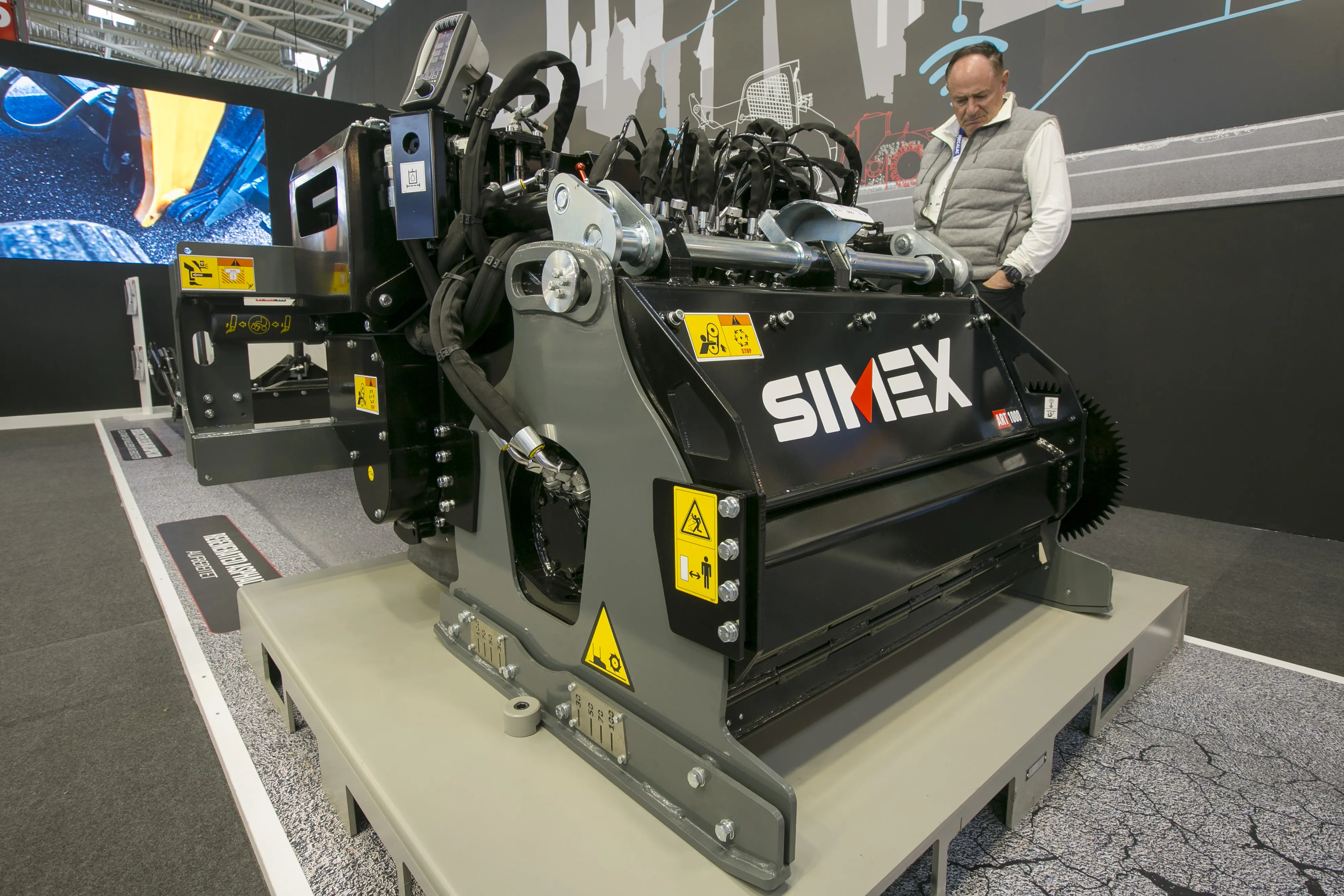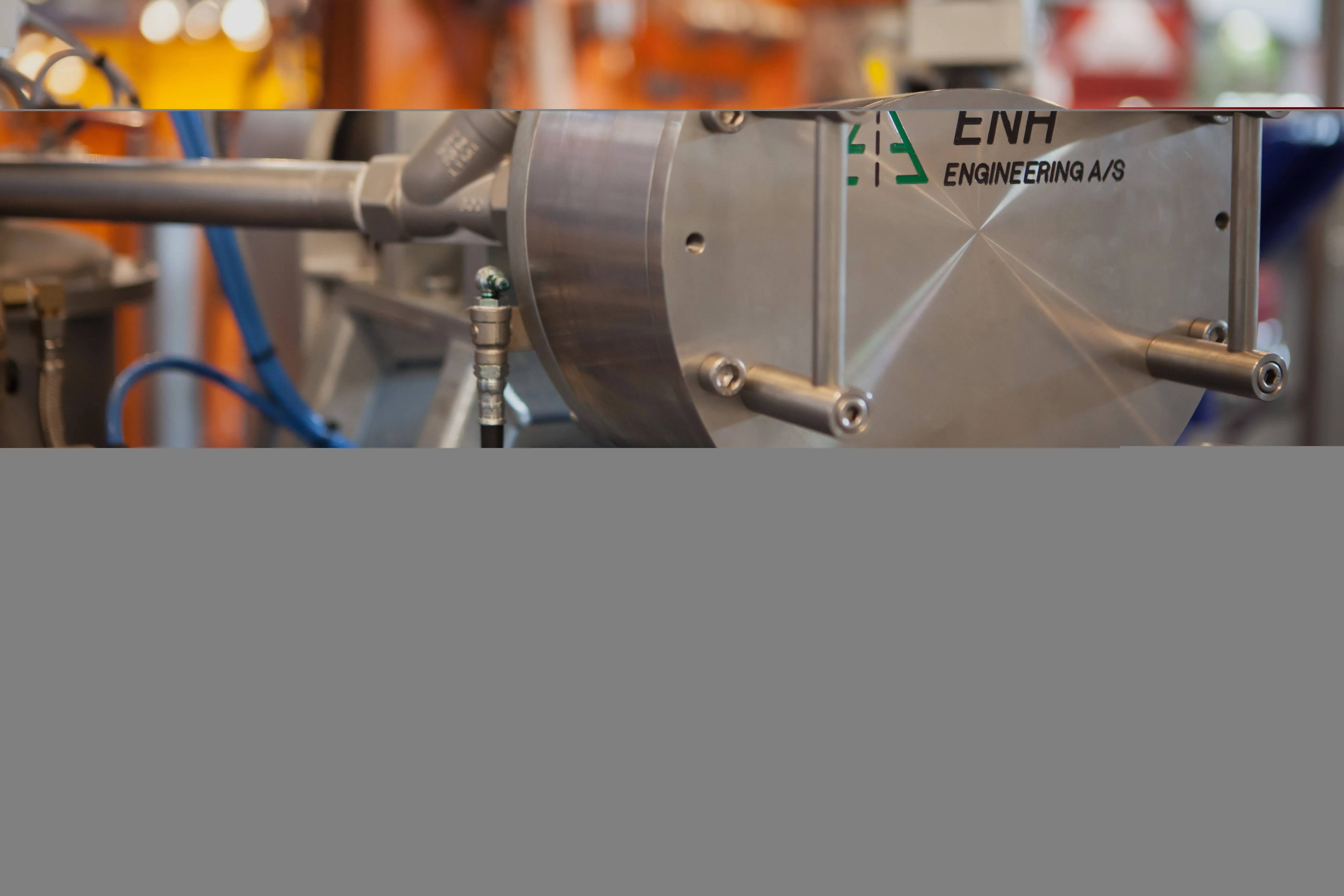
Simex has launched the next generation of its ART 1000 attachment for in-situ cold recycling of asphalt roads. ART 1000 – GEN II benefits from upgrades to its on-board electronics to provide more information to the operator, the addition of a Wi-Fi transmitter for remote monitoring, and some small design changes to make maintenance easier.
First launched in 2022, Simex developed the ART 1000 to rejuvenate deteriorated roads, without the need for additional material or heating. As well as milling and crushing the road surface, the system adds a rejuvenator to the milled material to restore some of the properties of the aged bitumen in the asphalt – and returns it to the road for compacting.
“With a small investment, the ART allows the life of a road to be extended without having to bring in new material for resurfacing, or the need to take any material away,” says Federico Tamburri, key account manager at Simex.
With secondary and country roads in many European countries in poor repair, Simex is in discussions with a major excavator manufacturer who sees its potential.
The ART 1000 works by first milling material from the road, up to a depth of 100mm. It is mixed in the milling drum with a calculated amount of rejuvenator. In a second drum the material is crushed to the correct size before being returned to the road. A final phase sees the attachment run over the material on the road to give it a final mixing before it can be compacted with a roller.
The latest generation includes a new video interface which displays real-time information such as linear metres completed, additive dosage and total additive consumption – which is also compiled into an end-of-day report. Simex software adjusts the dosage of the additive according to the speed of advancement, with a series of LED lights which indicate when the ideal speed of travel has been reached.
Simex has also made changes to the 100-litre additive tank so that it is easily removable and allows access to the crusher drum for cleaning. The grille in the crusher drum that determines particle size is also now easily removable for cleaning.
To work in tandem with the ART 1000, Simex has also created the ST-ART 200 mini dozer, to spread the rejuvenated material. “We found that with the ART, several people were required to shovel the rejuvenated material into the right channel before it is compacted,” explained Tamburri. “This mini tracked dozer can be used to spread the material around.”
The ST-ART 200 also has two tanks: a 170-litre tank which holds back-up rejuvenator for the ART and a 200-litre tank for emulsion which can be sprayed onto the road to seal it at the end of the process.







